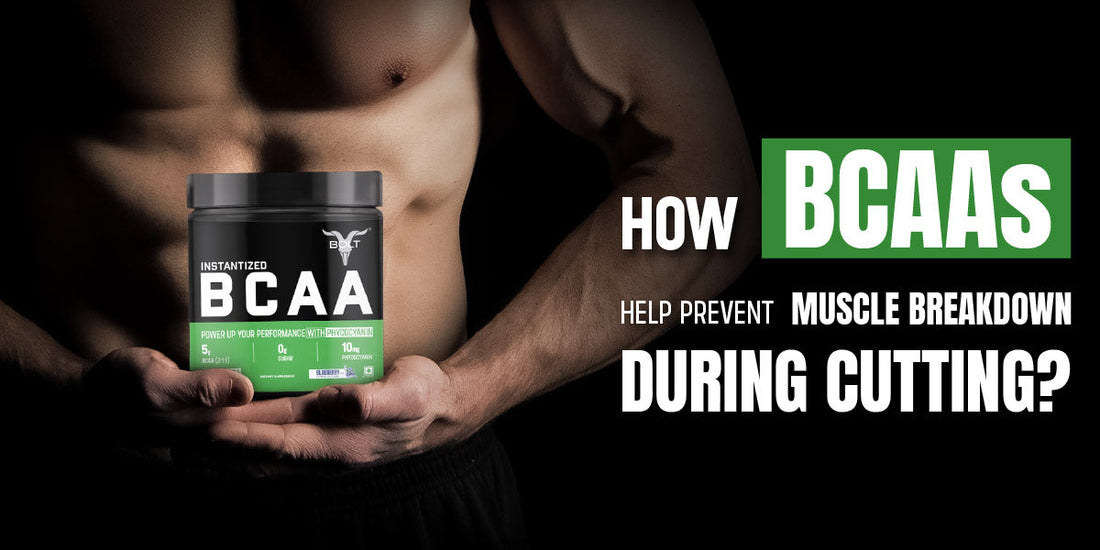
How BCAAs Help Prevent Muscle Breakdown During Cutting?
byDuring the cutting phase, your goal is to lose body fat while preserving as much lean muscle mass as you can. However, due to the calorie deficit required during cutting, muscle loss can occur — unless you take the right steps. One of the most powerful tools in your supplement stack? BCAAs (Branched-Chain Amino Acids).
What Are BCAAs?
BCAAs consist of three essential amino acids:
- Leucine
- Isoleucine
- Valine
These cannot be produced by your body and must be obtained from food or supplements. They are especially vital during exercise when your body is under stress and may break down muscle for energy.
How BCAAs Help Prevent Muscle Breakdown
1. Promotes Muscle Protein Synthesis (MPS)
Leucine acts as a trigger for MPS — the process of building new muscle tissue. This helps counteract the catabolic (muscle breakdown) effects of a calorie deficit.
2. Reduces Exercise-Induced Muscle Damage
BCAAs minimize damage to muscle fibers during intense training, helping you recover faster and train harder.
3. Spares Muscle Glycogen
During low-carb or calorie-deficit diets, BCAAs can serve as an energy source, sparing glycogen and reducing the need to break down muscle.
4. Reduces Cortisol Levels
Cutting causes an increase in the stress hormone cortisol, which encourages muscle breakdown. BCAAs help buffer its effects and support anabolic balance.
When to Take BCAAs?
- Before Fasted Workouts: Prevent muscle loss when training without eating beforehand.
- Intra-Workout: Sustain energy and protect muscle during long or intense sessions.
- Post-Workout: Support muscle recovery and repair.
Recommended Dosage
For cutting phases, 5-10g of BCAAs per day is typically effective, with a 2:1:1 ratio of leucine to isoleucine and valine.
Can You Get BCAAs from Food?
Yes, foods like chicken, eggs, tofu, lentils, and whey protein contain BCAAs, but supplementation ensures you're getting enough — especially during strict dieting.

Common Myths About BCAAs
-
Myth: BCAAs are only for bodybuilders
Truth: They benefit anyone looking to preserve muscle — from athletes to casual gym-goers.
-
Myth: You don't need them if you take whey protein
Truth: While whey has BCAAs, isolated BCAAs offer quicker absorption and targeted support during training.
Key Takeaways
- BCAAs support muscle retention during a calorie deficit.
- Leucine plays a key role in protein synthesis.
- BCAAs reduce fatigue, support recovery, and prevent catabolism.
- Ideal during fasted workouts or low-calorie diets.









